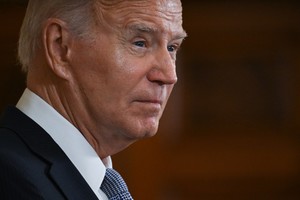Humans are Ultra-Social: COVID-19 Is Emotionally Tough This Thanksgiving, Politics Aside

When the U.S. economy was mostly shut down in a wide-ranging effort to slow the spread of the COVID-19 coronavirus, the impact was immediate and severe. Weekend destinations and lively centers of cultural activity, once packed with crowds of visitors, suddenly became empty and silent. Perhaps the strongest example of such a COVID-induced ghost town was when Americans saw New York City’s Times Square eerily empty for the first time in their life, as shown in both left-rated and right-rated media outlets. Americans were left to contemplate the enormity of the force of nature that could cause a standstill of this magnitude.
Yet the pandemic’s impact was more than economic. Each restaurant and bar that was shut down was not just a place to eat, but a place to connect with people face-to-face. Each theater, stadium or cultural venue that was shut down was not just a place to consume an event, but another way to socialize.
We now approach Thanksgiving and the holiday season, a time for gathering together with friends and family. But this year, the joy of connecting and the risks of COVID-19 are in conflict.
Humans are deeply social, and this longing for social interaction undoubtedly cuts across political divides. People can differ on the correct balance between meeting social needs and staying healthy, but both are important goals that are shared widely regardless of political beliefs. So what are the long-term effects on us when our social and cultural outlets are restricted, increasing the likelihood of isolation across an entire population?
The science on social isolation is clear and stark. Psychological studies indicate that social isolation and loneliness are associated with poor mental health. Medical studies show that the negative health impact of social isolation and loneliness is roughly equivalent to smoking 15 cigarettes per day. Brain scans undertaken while people are excluded from social activity show that social rejection triggers the same brain regions as physical pain.
Evolutionary psychology offers a theory for why we are so deeply hardwired for social connection and culture. Our earliest primitive ancestors formed mutually cooperative groups. In these groups, each member collaborated in hunting large game and shared in the spoils of the hunt. Nation-states are mutually cooperative groups of millions of individuals, where each member contributes to the larger society’s culture in some way and receives a portion of the wealth in exchange. Sociologists call this development towards large-scale mutual cooperation ultra-sociality.
In today’s individualistic society, we seem more self-sufficient and less dependent on our neighbors than ever. However, we are arguably as dependent on our larger society as our tribal ancestors were on their immediate tribal members. So when the pandemic shuts down or limits our local restaurants and venues, it is shutting down more than just places to eat or be entertained – It is limiting our deeply rooted need for social and cultural connection.
Across the country and the political spectrum, Democrats and Republicans are coping with COVID-19 infringing on the desire to associate with friends and loved ones, to move about and interact with whomever we please, and to participate in a broader national culture without restrictions.
As we continue to spar over issues such as the relative importance of masks, or reopening our schools or economy, Americans are finding some of the same solutions to their social isolation problems.
For example, Democrats and Republicans alike are increasingly turning to video conferencing to keep in touch with friends and family. Virtual communication is not a full replacement for the real face-to-face, but both left-leaning and right-leaning media show how some geographically-distant family members are now more connected than ever before after replacing occasional in-person meetings with regular weekly teleconferences. Likewise, media from both sides show how some seniors have been able to keep in touch or even experience a rejuvenation of their social life, as COVID has motivated them to learn how to use video conferencing. Some of these technologies are sure to be used over Thanksgiving and throughout the holidays.
As we continue to fight this pandemic, let’s keep in mind that we are all wrestling with how to find the right balance between meeting our social needs and keeping ourselves and others healthy.
Rolf Hendriks is a software engineer with a passion for writing. He became involved in the depolarization movement when he joined Braver Angels, participating in Braver Angels book discussions and debates while publishing a depolarization song for the Braver Angels songwriting contest. Rolf has a Center bias.
This piece was reviewed by James Coan of Braver Angels (Center bias). It was edited by AllSides Managing Editor Henry A. Brechter (Center bias).
Image Credit: Kyle James/Flickr

May 9th, 2024

May 7th, 2024

May 7th, 2024